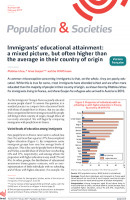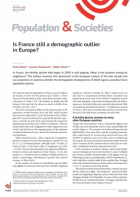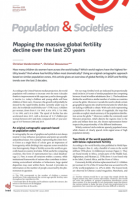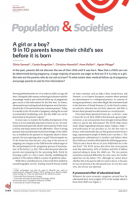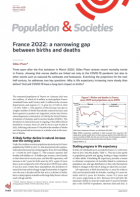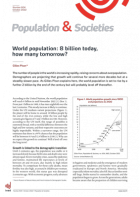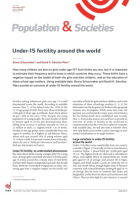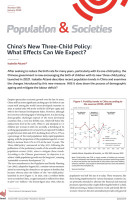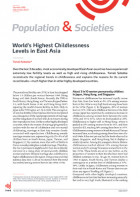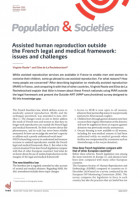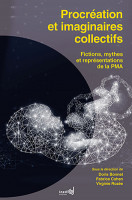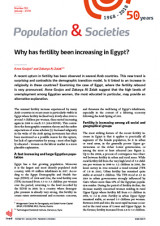
Why has fertility been increasing in Egypt?
Population and Societies
n° 551, January 2018
A recent upturn in fertility has been observed in several Arab countries. This new trend is surprising and contradicts the demographic transition model. Is it linked to an increase in religiosity in these countries? Examining the case of Egypt, where the fertility rebound is very pronounced, Anne Goujon and Zakarya Al Zalak suggest that the high levels of unemployment among Egyptian women, the most educated in particular, may provide an alternative explanation.
After declining slowly to 3 children per woman on average in the mid-2000s, fertility in Egypt has risen back to 3.5 children in recent years. Women are marrying earlier and more frequently. They also bear their children at younger ages. Some argue that this reflects an increase in religiosity. The labour market difficulties of Egyptian women, the most educated especially, provide a more convincing explanation. Faced with a lack of job opportunities and a slack labour market, women may be deciding to marry and have children earlier than previous cohorts, though without wishing to have larger families. If this is the case, the number of births should fall when these women have reached their desired family size.

